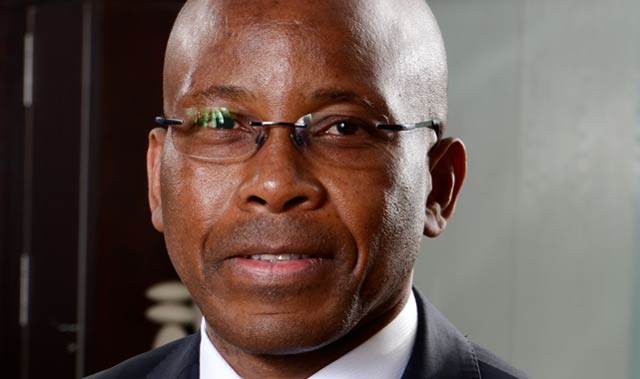
It’s well known that MTN South Africa has had a torrid few years. It’s lost market share to Vodacom and Cell C, it’s suffered debilitating industrial action, its network hasn’t been up to snuff, its customer service has been found wanting and it’s had a revolving door of CEOs.
But its latest CEO — Mteto Nyati, formerly country MD for Microsoft, who has been in the post for just over a year — believes he’s now on top of the problems that have bedevilled the operator in recent years. And he’s set out a detailed action plan of how he’s going to win back lost market share and take the fight particularly to bigger rival Vodacom, especially in the lucrative post-paid segment.
Analysts have warned, however, that winning back lost market share will be difficult, especially from Vodacom, which continues to function like a well-oiled machine.
“Coming into 2016, our focus had to be fixing the basics,” Nyati said in an exclusive interview with Business Times this week. This meant a radical improvement to the network. “We were below par in some areas, and this was not something a No 2 market player should accept.”
MTN hired an external company to benchmark its network against its rivals. And it hired a top executive from Vodafone, Babak Fouladi, as its interim chief technology officer (Fouladi has also been appointed as group CTO). It then identified eight cities — the big ones, including Johannesburg, Pretoria, Cape Town and Durban, which generate 70% of its revenue and where most of its high-value customers live — and focused relentlessly on reducing dropped call rates and improving network throughput, among other metrics.
“Independent assessments now show that we are at the level we wanted to be in those cities, or No 1,” Nyati said. “Next year, we will be moving to other cities, but it was important to be competitive first in these ones.”
Another focus was MTN’s poor-quality call centres, which were always going to be a hot potato given that this part of the business was the focus of a protracted and sometimes violent strike in 2015, led by the Communication Workers Union.
Despite union resistance, Nyati pressed ahead with a partial outsourcing of the call centres, with routine and repetitive tasks (the greater volume of queries) now handled by a third party and more complex and sophisticated tasks handled by a smaller and more specialist in-house team.
We have been growing consistently since the third quarter of last year, and we are growing faster than No 1 (Vodacom); we are taking value share from them
MTN avoided further strike action, Nyati said, by keeping staff abreast of the strategy behind the outsourcing. “We now have very strong engagement with our employees. We have become the primary source of information to them, and because of that they could make better decisions. By being open and honest in our dealings with them, they could see we have applied our minds, and we started to have stability in the workplace.”
He said this engagement is critical for any company facing the challenges of weak economic growth and uncertainty. “Companies that can’t manage the relationship with their employees and the unions are going to have big challenges.”
Quality controls have also been imposed. All customer queries must be sorted out within 24 hours, Nyati said. If they’re not, management intervenes to find out what the problem is. “Once we gain insight into a problem, we proactively ask who else could be affected by it and then call customers before they even have the problem.”
He said the company’s net promoter scores – a measure used by many telecommunications companies to determine how likely their customers are to recommend their services to others – have improved by eight points since January, Nyati said. This is even though MTN hiked prices in July.
Its 450 retail stores nationwide are also a big focus area. These are being overhauled, with more self-service areas and more reliable systems along with new training for customer-facing staff. Thirty-five stores were refurbished in 2016, but budget has now been allocated to expand this to a rate of 30 stores a month in 2017.
MTN has also begun cracking down on Sim-swap fraud, with one-time Pins now in place for authentication, for example. Anti-fraud measures will attract more and more investment, Nyati said.
All these measures are starting to bear fruit.
“We have been growing consistently since the third quarter of last year, and we are growing faster than No 1 (Vodacom); we are taking value share from them.”

Crucially, net connections on post-paid have been positive for the past four months, he said. “No 1 is stronger in that space. We have the same prepaid revenue [as Vodacom] … but the area where we have been weak is in post-paid.”
But Irnest Kaplan, MD of Kaplan Equity Analysts, has warned that MTN South Africa will have to work “disproportionately hard” to win back lost market share.
“There was a period of years where MTN was not doing well and it seemed like Vodacom was really powering ahead. It had a lot of problems, but it now seems it’s addressing these, but normally these things take some time so surface in the results,” Kaplan said.
“When you lose ground in the mobile space — say if Vodacom powers ahead for 18 months — it’s very difficult to recover that. It will take a lot of effort to recover lost ground.”
Brian Neilson, research director at BMI-TechKnowledge, said MTN has not done enough yet to turn the ship around fully. Where it has done well is in investing in its network – more than R20bn in 2015 and 2016. This will allow it to compete better with Vodacom, which is “capitalising” on its claim that it has the best network for data.
“If MTN can be at least as good as the best network for data, then I think that is going to be its number one comeback [opportunity].”
- This article was also published in the Sunday Times of 20 November 2016




